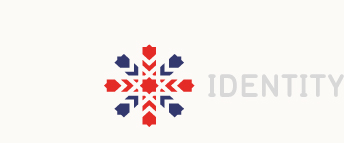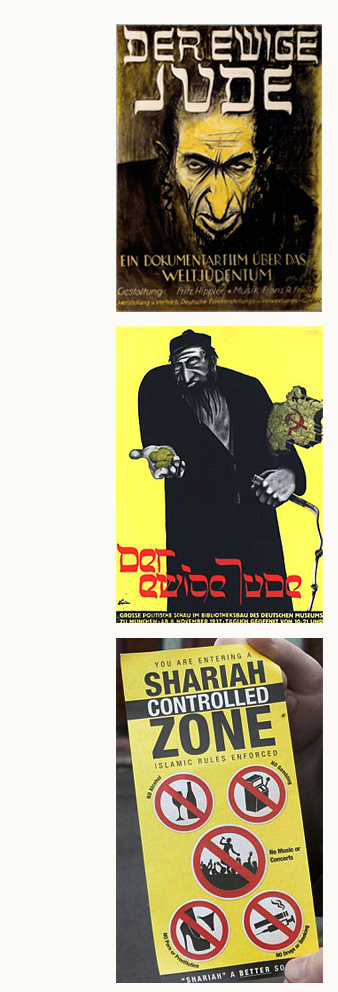


British Muslims
European Muslims
Originated From
Age & Sex
Places of Worship
Ethnic Groups
Defining Identity
What they Say
Profession of Faith
Praying
Social Responsibility
Fasting
Pilgrimage
Muslims in Britain
Impact of Media
Islamophobia
Identity
British & Muslims
Surveys
Interviews
Auto Photography
Islamophobia
Fear, hatred, and prejudice
Islamophobia describes prejudice against, hatred or irrational fear of Islam or Muslims. [13]
In 1997, the British Runnymede Trust defined Islamophobia as the “dread or hatred of Islam and therefore, to the fear and dislike of all Muslims,” stating that it also refers to the practice of discriminating against Muslims by excluding them from the economic, social, and public life of the nation. It includes the perception that Islam has no values in common with other cultures, is inferior to the West and is a violent political ideology rather than a religion. [14]
“It is now open season for attacks on Muslims. Hardly a day goes by without another lurid denunciation of the “enemy within”. Saslma Yaqoob, The Guardian [15]
Muslims are regularly portrayed in the media as being backward, anti-Western, oppressive to women, terrorists and a threat to the British way of life, along with attempts by government to control ‘the Muslim problem’. Many people argue that Islamophobia is a new form of ‘acceptable racism’. After the Danish cartoons affair in 2006, the Mayor of London, Ken Livingstone, held a press conference at City Hall and called for an end to the media’s “orgy of Islamophobia”.
Most decisively, the terrorist attacks on 9/11 have given new significance to being a Muslim in the western world. Conflict with Muslims and the west entered a new phase of spectacle and attention, and turned the eyes of young Muslims. The attack on the twin towers and the London bombings of 7/7 increased concerns about whether Muslims can live in peace in Britain.
A series of events in Europe have further ignited passions and exacerbated the feeling of division – the murder of Dutch film-maker Theo Van Gogh in Amsterdam in 2004 by a Dutch-Moroccan Muslim man; the controversy over the Danish cartoons that caused deep offence to Muslims across Britain and the rest of the Muslim world in 2006; the provocative remarks made by Pope Benedict XIV in 2006 about Islam and violence; in Britain, the comments made by Jack Straw MP expressing his concern about the choice of Muslim women in his constituency to wear the veil, and most recently David Cameron’s speech on the failings of multiculturalism in Britain. These incidents have all brought Muslims into the spotlight and provoked anxiety about their relationship within British society and ‘British values’. This increased attention has occurred at a time when the next generation of British Muslims are maturing and starting to consider questions of personal identity. Many are doing so in a context in which they feel they are seen as Muslims, and little else. This is emphasised by the way the media and politicians, as well as Muslim groups, talk about the ‘Muslim community’. [16]
Nazi policy since 1920 emphasized that only people of “German blood” could be considered German citizens while no one of Jewish descent could be a German citizen. [17]
Targeting a specific ethnic group or religious identity, can only cause pain and suffering for those experiencing discrimination. If we look at history throughout the 20th century, we can see examples of what persecution of a particular group of people leads to. In 1933 when the Nazis came into power in Germany, they systematically victimised, harassed and violently oppressed the Jewish community just on the basis of their faith and Nazi cultural perception of the Jews, based upon anti-Semitism.
“The Jew is the enemy and destroyer of the purity of blood, the conscious destroyer of our race ... As socialists, we are opponents of the Jews, because we see, in the Hebrews, the incarnation of capitalism, of the misuse of the nation’s goods.” Propagandist, Joseph Goebbels [18]
No one in 1933 could foresee what the Nazis would eventually do in the concentration camps of Auschwitz and others. I am by no means trying to draw direct comparison between the brutal persecution of the Jews of Europe to that of Muslims living in Britain and the West today. But we have to see that once you allow open discrimination of a group of people and it is seen to be accepted by society things escalate and can have unforeseen consequences.
Muslims living in Britain today are under so much scrutiny from all sections of British society due to media and political policies. When young people interact with each other from all faith groups in British society, they can only go by what they have heard about each other. If all they have heard from the news is that Muslims are ‘terrorists’ and ‘oppressive people’, they can only have negative perceptions. We need our children to grow up with an understanding of one another if we are to have a balanced liberal society.